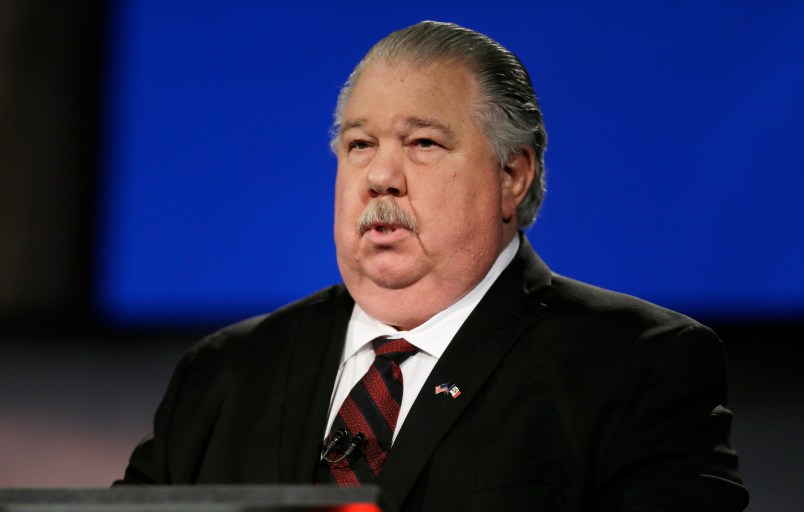Often when we are trying to understand a complex story it is the facts that we are most acclimated to that are most significant. Since they are familiar, they can hide in plain sight. With this in mind, I was particularly struck by a passage on page three of George Papadopoulos’s plea document.
The plea agreement narrative states that in early March 2016 Papadapoulos learned he would be a foreign policy advisor for Trump’s campaign. At the time he was living in London. “Based on a conversation that took place on or about March 6, 2016, with [Sam Clovis] Papadopolous understood that a principal foreign policy focus of the Campaign was an improved U.S. relationship with Russia.”
I’ve looked back over news accounts from late 2015 and the beginning of 2016. Russia had definitely come up as an issue with Trump. But it was primarily about Trump’s then-odd-sounding praise of Vladimir Putin and some positive comments Putin had made about Trump in return. At a conference in mid-December Putin had said: Trump “is a very flamboyant man, very talented, no doubt about that …. he is an absolute leader of the presidential race, as we see it today … He’s saying he wants to go to another level of relations – closer, deeper relations with Russia. How can we not welcome that? Of course we welcome that.”
But Trump didn’t seem to have much foreign policy at all, other than a focus on retrenchment and not fighting more wars in the Middle East. He talked a lot about bad trade deals. But bilateral trade isn’t a big issue with Russia. Again, Trump had little clearly expressed foreign policy at all. Indeed, that was the immediate trigger of putting together this list of policy advisors: to provide some explanation of who was advising him or that he had a foreign policy at all.
But at least according to this plea document, Clovis made clear that a rapprochement with Russia was “a principal foreign policy focus.” (True, President Obama came into office wanting a “reset” with Russia. But it was a secondary or even tertiary focus of his campaign and subsequent presidency.) This exchange happens a few weeks before Trump hires Paul Manafort. But he’d been pitching himself for a job with Trump in February. It’s around the time Mike Flynn is going from being a sometimes informal advisor to a clear member of the campaign team. Flynn was clearly interested in closer ties with Russia. He’d visited Moscow for that 10th Anniversary conference for RT, where he sat as a guest of honor of Vladimir Putin. Of course, as I and many others have noted, Trump himself had deep financial ties to investors and purchasers in the countries of the former Soviet Union as well.
We have a list of possibilities but no clear explanation. Sam Clovis, who’d signed on with Trump in late 2015, puts together this group and in his introductory chat with Papadopoulous tells him that a rapprochement with Russia is a top focus of the campaign. I suspect most people in early March, even reporters following the campaign closely, would have been highly surprised to hear this, notwithstanding Trump’s and Putin’s mix of chummy statements about each other. It wasn’t clear Trump really had any foreign policy at all. Again, that was part of the need to whip up this group. By early March he was clearly in a good position to become the nominee. People needed to know what his views were and who was advising him. So was this Clovis? Was it Clovis acting on Trump’s instructions? Was it Clovis trying to infer a policy agenda from Trump’s various public statements?
I don’t have a clear answer to this. But I’m not sure anyone else does either, even though it’s so central.






